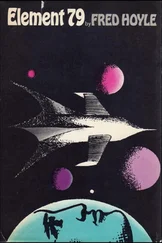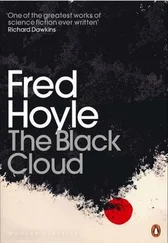“For heaven’s sake! Do you think the cosmos is populated by Boy Scouts sending morse code?”
Bridger came in looking pale and twitchy, but his presence seemed to calm Fleming and he confirmed Fleming’s reports.
“It could be from a very distant probe,” Osborne suggested.
Fleming ignored him.
Judy plucked up her courage. “Or another planet?”
“Yes!”
“Mars or somewhere?”
Fleming shrugged: “Probably a planet going round some star in Andromeda.”
“Signalling to us?”
Reinhart handed the papers to Osborne.
“It’s certainly a coherent form of dots and dashes.”
“Then why has no-one else picked it up?”
“Because no-one else has got equipment like this. If we hadn’t given you a thundering good piece of circuitry, you wouldn’t be getting it now.”
Osborne sat down on a corner of the control desk, looking at the papers in a dazed sort of way.
“If some sentient being is trying to communicate... No, it doesn’t make sense.”
“It’s possible.” Reinhart glanced down at his small delicate fingers, as if this were something he would prefer not to talk about. “If there are other creatures—”
Fleming interrupted him: “Not creatures—another intelligence. It doesn’t have to be little green men. It doesn’t have to be organic at all; just an intelligence.”
Judy shuddered, then pulled herself together. “Why do I shiver?”
“For the same reason I do,” said Fleming.
Osborne came out of his daze.
“For the same reason everyone will, if it is an astronomical source.”
They decided in the end to listen for it again that night. The message had not stopped, merely faded as the rotation of the earth had swung the telescope away from it. The chances were that it would still be going on. Once he had accepted the possibility, Reinhart became calm and businesslike. He and Fleming and Bridger spread out the papers and examined them.
“You know what it might be?” Fleming said. “Binary arithmetic.”
“What’s that?” asked Judy.
“It’s arithmetic expressed entirely by the figures 0 and 1, instead of the figures 1 to 10, which we normally use and which we call denary. 0 and 1, you see, could be dot and dash. Or dash could equal 0 and dot 1. The system we use is arbitrary, but the binary system is basic; it’s based on positive and negative, yes and no, dot and dash—it’s universal. Strewth.” He turned on her with his eyes bloodshot and feverish with strain and excitement. “’Philosophy is written in mathematical language!’ Remember? We’re going—Wham!—clean through on this!”
“We’d better put off the opening,” said Osborne. “We don’t want this in the Social Gazette .”
“Why not?”
Osborne looked pained. Nothing in his world was as simple as that; nothing could be said or done without permission. On his files, what happened at Bouldershaw Fell was one small part of an intricately complex pattern of arrangements, and behind them loomed everything that Vandenberg stood for. Everything had to be weighed and considered with caution.
“What do I tell the press?” Judy asked him.
“Nothing.”
“Nothing?”
“Are we a secret society or something?” Fleming regarded him with contempt, but Osborne managed to sound at the same time official and reasonable.
“You can’t throw this kind of undigested information about. There are other people to consult, and besides there might be a panic: space-ships, saucers, bug-eyed monsters. Every idiot in the country will be seeing them. Or it may be someone up to something. Nothing must appear in the press, Miss Adamson.”
They left Fleming seething, went to the Professor’s office to telephone the Ministry, and drove away.
At the Lion at Bouldershaw the press had already begun to arrive to cover the opening ceremony. Judy piloted Reinhart and Osborne round by the back door to a small room where they were given dinner rather late and were able to dodge the growing phalanx of scientific correspondents living it up in the lounge. Osborne made covert dashes to the phone box between each course and came back each time looking more harassed and depressed.
“What did the Minister say?”
“He said—ask Vandenberg.”
They ate through some tepid meat and he went off again.
“What did Vandenberg say?”
“What did you imagine he’d say? ‘Keep quiet about it.’”
Judy was to tell the press, the next morning, that the opening had been cancelled because of a technical hitch, nothing more. Any other statement would be made from London to the Fleet Street desks. They contrived to slip out again, unnoticed, by the back door.
Half an hour later, Fleming’s car pulled up outside and Fleming, tired and thirsty, disappeared into the lounge.
The message was picked up again that evening. It went on all through the night and was recorded by Fleming and Bridger in turns, not only the audible dots and dashes, but the high speed part of the message as well. The next morning Dennis Bridger went down by himself to Bouldershaw and Harries followed him. After leaving his car in the Town Hall car park Bridger walked down a cobbled side-street to the lower part of the town. Harries followed him on foot at a distance of one street corner. With a raincoat in place of his overall, Harries looked more like an Irish gunman than a lab cleaner and he was careful not to let Bridger see him. Harries himself did not notice a couple of men standing on the pavement on the opposite side of the road to a small doorway marked JAS. OLDROYD, TURF ACCOUNTANT. There were a number of people around; two men talking were not conspicuous.
Bridger turned in at the doorway and entered a narrow dark passage with stairs with linoleum treads running up to the floor above and a door with a frosted glass panel near the foot of the staircase. When he closed the outer door, the noise of the street was sealed off, leaving the passage as solitary as a crypt. The door with the frosted glass bore the same lettering for Jas. Oldroyd. It also said Knock and Enter ; Bridger did so.
Inside, Jas. Oldroyd was having a late breakfast at his desk. An elderly man in rolled-up sleeves and a dim colourless cardigan, he was sopping up fried egg with a piece of bread on the end of a fork when Bridger walked in. There was no-one else in the office, yet the small room seemed full, with a litter of papers, telephones, an adding machine, a ticker-tape and a teleprinter. Several tradesmen’s calendars hung on the walls, torn off at different months, but there was a prominent, very accurate clock. Mr. Oldroyd looked up from his web of old litter and new equipment and eyed Bridger for a moment.
“Oh, it’s you.”
Bridger nodded towards the teleprinter machine.
“O.K.?”
Mr. Oldroyd put the piece of egg-soaked bread in his mouth by way of answer and Bridger set to work on the telex.
“How’s business?” he asked as he switched it on and dialled a number. It sounded like a stock greeting between old acquaintances.
“Chancy,” said Mr. Oldroyd. “Horses ’ave no sense of responsibility. If they’re not bunchin’ they’re crawlin’, like t’ruddy buses.”
Bridger typed: KAUFMANN TELEX 21303 GENEVA. Then he became aware of a scuffling in the passage outside. A single head was silhouetted for a moment against the glazed panel of the door. Then there was a grunt and a groan, and the head was pulled away by other less distinct figures.
Bridger glanced at Oldroyd, who appeared to have noticed nothing and was cutting the rind off a piece of curled up bacon. He went back to the printer. When he had finished typing, he stepped cautiously out into the passage. It was empty. The street door was swinging open, but in the street outside there was no sign of anything unusual. There was no-one standing opposite, no-one watching from the corner. A car driving away might or might not have had something to do with it.
Читать дальше












